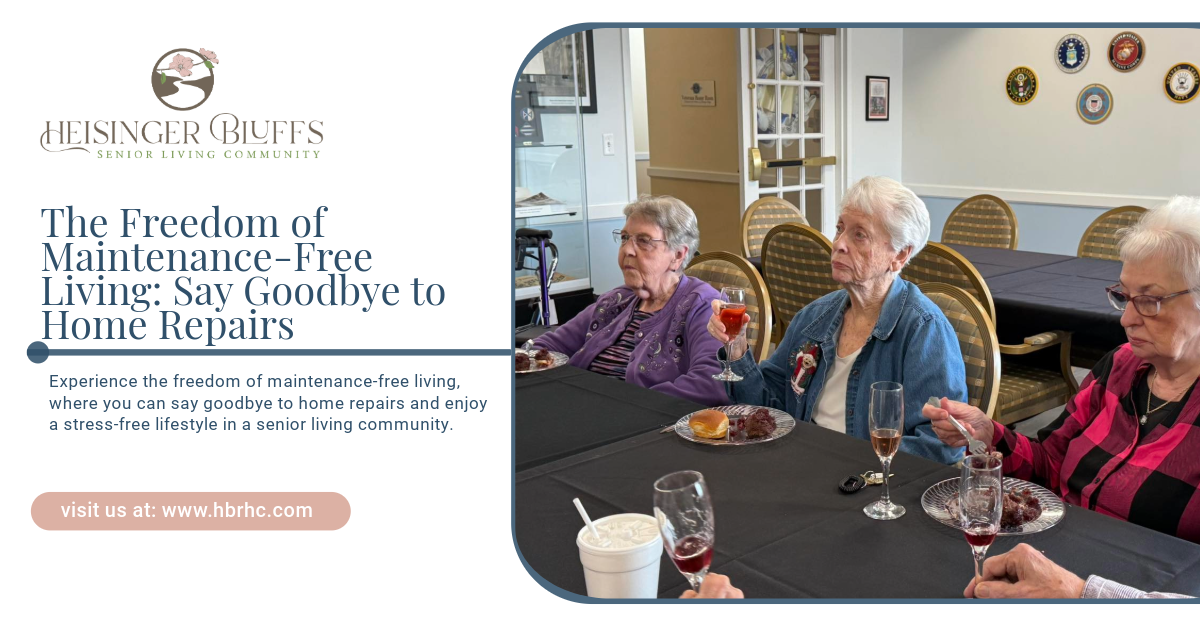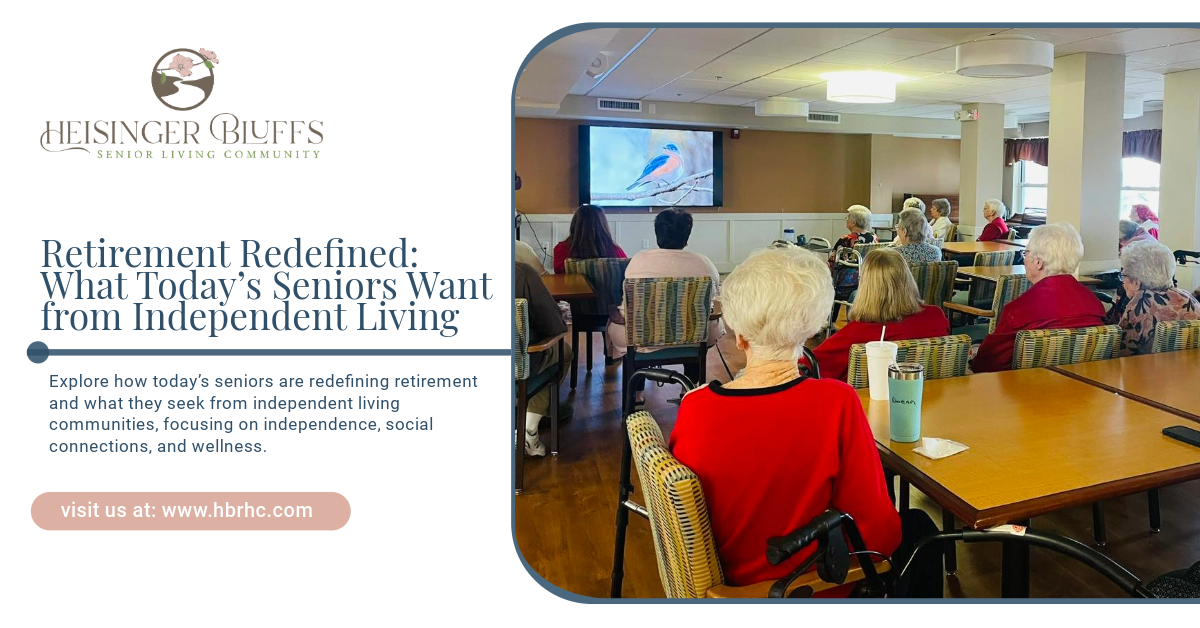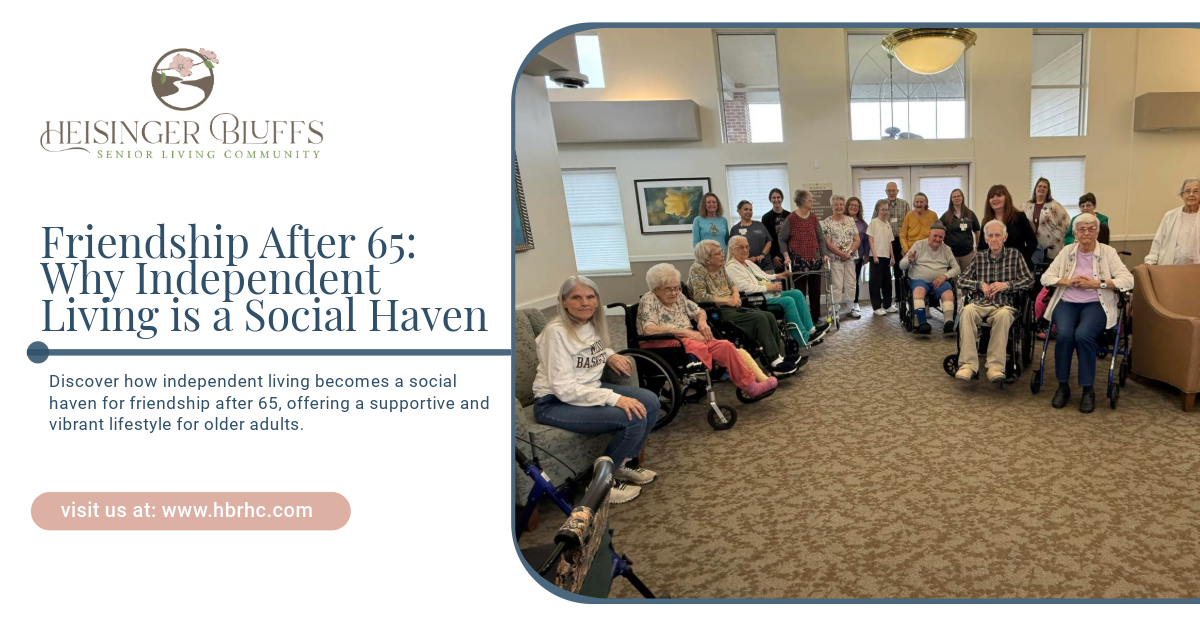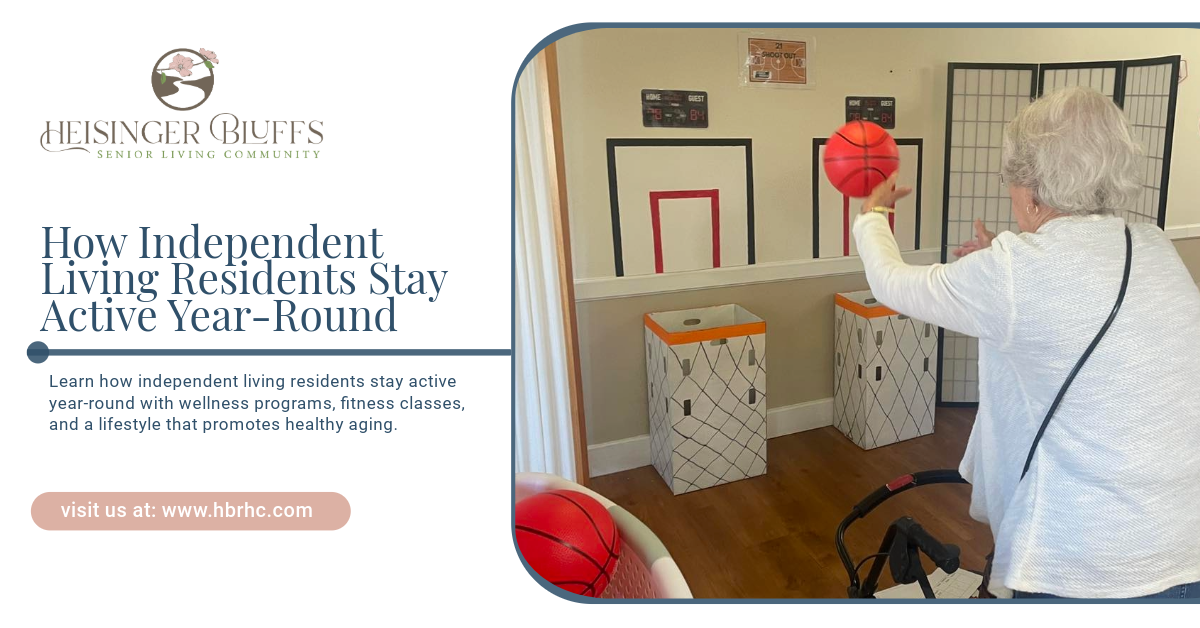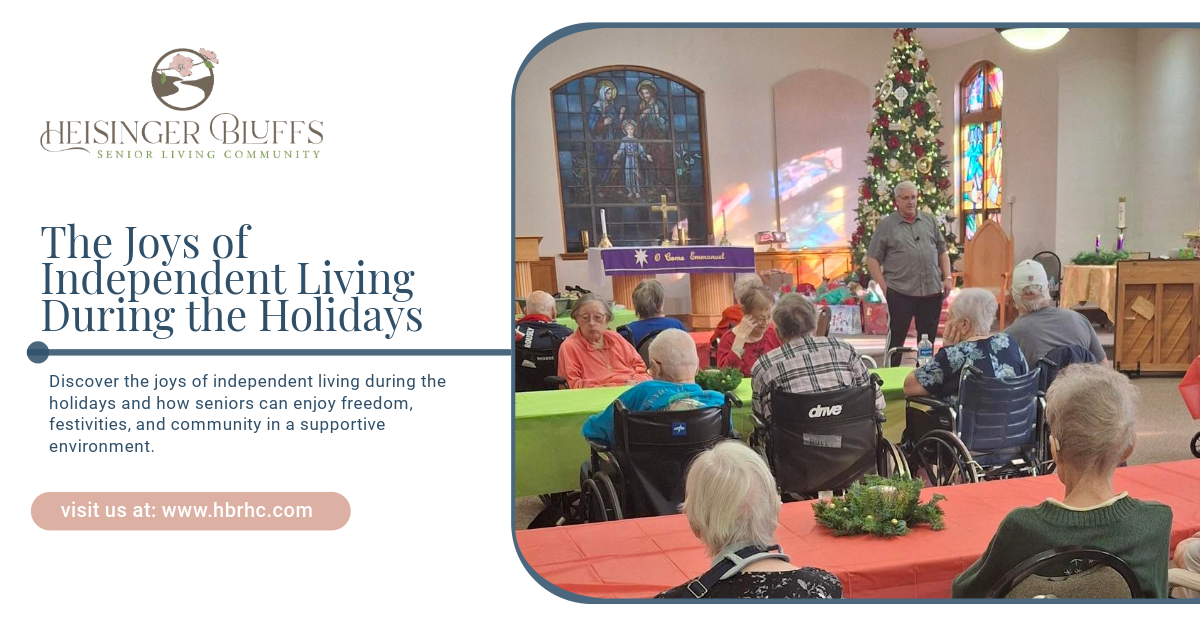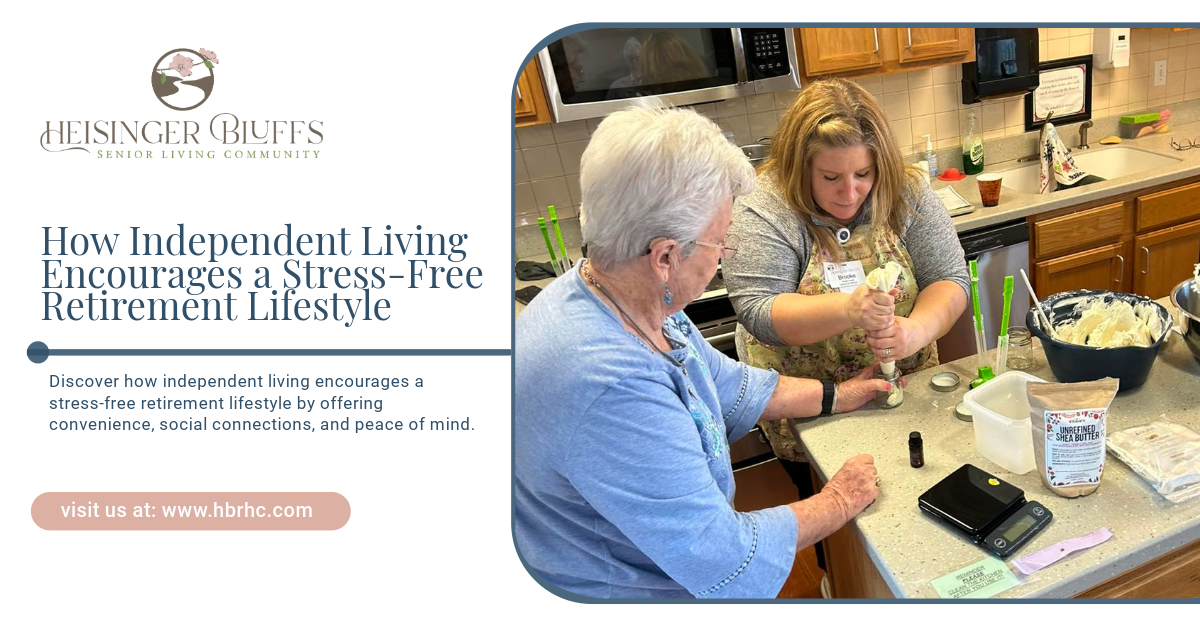Get in touch
Senior Living Options for Alzheimer’s Patients in Jefferson City, MO

Understanding Alzheimer's Care in Jefferson City, Missouri
Alzheimer's disease presents unique challenges in senior care, particularly when it comes to choosing the right living environment for those affected by this condition. Understanding the disease and its impact on seniors is the first step in making informed decisions about appropriate care options.
Overview of Alzheimer's Disease
Alzheimer's disease is a progressive neurodegenerative disorder that affects memory, thinking, and behavior. As the most common form of dementia, it gradually diminishes a person's ability to perform even the simplest tasks. Early symptoms may include forgetfulness and confusion, but as the disease advances, individuals may experience significant memory loss, language problems, and behavioral changes.
In the United States, Alzheimer's disease is a leading cause of disability and dependency among older adults. It's a condition that not only impacts the individuals living with it but also poses significant challenges for family members, caregivers, and the healthcare system.
Impact on Seniors with Alzheimer's
The progression of Alzheimer's disease greatly affects the life of a senior, necessitating adjustments in living arrangements to ensure safety and appropriate care. As cognitive function declines, seniors with Alzheimer's may require more assistance with daily activities and medical management.
Recent reports indicate that a high percentage of assisted living residents have dementia or Alzheimer's, with many exhibiting behavioral symptoms and receiving psychotropic medications. This underscores the importance of specialized care environments tailored to the needs of individuals with Alzheimer's.
Seniors living with Alzheimer's can exhibit a range of symptoms, including:
- Memory loss that disrupts daily life
- Challenges in planning or solving problems
- Difficulty completing familiar tasks at home or leisure
- Confusion with time or place
- Trouble understanding visual images and spatial relationships
- New problems with words in speaking or writing
- Misplacing things and losing the ability to retrace steps
- Decreased or poor judgment
- Withdrawal from work or social activities
- Changes in mood and personality
With these challenges in mind, it's essential for caregivers and family members to explore senior living options that provide specialized care and support for Alzheimer's patients. Such living arrangements can range from independent living in the early stages of the disease to more intensive care settings like assisted living facilities, nursing homes, or life plan communities as the need for round-the-clock care increases.
For those in Jefferson City, Missouri, and surrounding areas, seeking senior living for Alzheimer's patients means finding a community that not only meets the medical and safety needs of their loved ones but also enhances their quality of life through specialized programming and individualized care. Whether looking for senior living for dementia patients, assisted living for Parkinson's patients, senior living for arthritis patients, or senior living for diabetes patients, understanding the specific care requirements of each condition is paramount in making the best long-term care decisions.
Senior Living Options for Alzheimer's Patients in Jefferson City, MO
For caregivers and family members in Jefferson City, Missouri, finding the right senior living option for a loved one with Alzheimer's is a critical decision. Understanding the different types of housing available can help in making an informed choice that prioritizes the well-being and individual needs of seniors with Alzheimer's.
Retirement Housing
Retirement housing, or independent living communities, may be suitable for individuals in the early stages of Alzheimer's who maintain a level of independence. These communities typically offer limited supervision, ensuring a balance between autonomy and support. They also provide various amenities such as social activities, transportation, and recreational facilities, fostering an engaging environment for residents.
Residents in retirement housing can enjoy the company of their peers while having access to assistance when needed. It is important to note, however, that as Alzheimer's progresses, a transition to a more supportive environment may become necessary.
Assisted Living Facilities
Assisted living facilities are designed for those who require help with daily activities but do not need the intensive medical and nursing care provided in nursing homes. These facilities often offer a combination of private or semi-private accommodations, meals, and support services. When considering assisted living for a family member with Alzheimer's, it is crucial to inquire about specialized dementia care options, as not all facilities may be equipped to handle the unique challenges posed by this condition.
Assisted living can be a good middle ground between complete independence and full-time care, providing a community setting with the added benefit of available assistance tailored to the evolving needs of seniors with Alzheimer’s.
Nursing Homes
Nursing homes offer comprehensive, round-the-clock care for seniors, including those with advanced stages of Alzheimer's. These facilities are equipped to handle the complex medical and personal care needs of residents, with varying staff-to-resident ratios and levels of staff expertise. Services typically include meal preparation, medication management, personal care, and engaging activities tailored to the cognitive abilities of the residents.
For individuals with Alzheimer's, nursing homes not only provide essential medical treatment but also address the safety and social needs of residents. It is often the preferred choice when the demands of care exceed what can be provided at home or in less intensive senior living settings.
Selecting the appropriate senior living option for a loved one with Alzheimer’s involves considering their current and future care needs, personal preferences, and the level of specialized support available. Whether exploring retirement housing, assisted living facilities, or nursing homes, each choice offers distinct advantages, and careful consideration will help enhance the quality of life for seniors living with Alzheimer’s.
Specialized Care Needs of Alzheimer’s Patients in Senior Living Communities
Catering to the unique needs of seniors with Alzheimer's requires specialized care strategies. These strategies encompass technology solutions, memory care training for caregivers, and person-centered care approaches.
Technology Solutions
The integration of technology in Alzheimer's care has proven to be beneficial in enhancing both the safety and quality of life for seniors living with this condition. Technological solutions, such as digital devices, sensors, and intelligent applications, assist in improving communication and providing better control for caregivers. Wearable devices and ambient non-invasive sensors stand out as leading technological innovations, helping to monitor patients discreetly and providing real-time data to caregivers.
However, the implementation of these technologies also brings challenges, including acceptability, durability, ease of use, and power requirements. To be effective, technological solutions should be user-friendly and based on open standards, ensuring compatibility and interoperability across different platforms and devices.
| Technology | Use Case |
|---|---|
| Digital Devices | Enhance communication |
| Sensors | Monitor patient movement and environment |
| Intelligent Applications | Provide reminders for medication and activities |
For further information on how technology improves the care of individuals with cognitive impairments, explore our article on senior living for dementia patients.
Memory Care Training
To provide high-quality care to Alzheimer's patients, caregivers must undergo specialized memory care training. This training equips caregivers with the necessary skills to understand the disease's progression, manage behavioral changes, and engage patients in activities that can help maintain cognitive functions for as long as possible.
Caregivers trained in memory care are adept at creating structured environments that reduce confusion and agitation in Alzheimer's patients. They also learn communication techniques that help them to connect with and soothe patients effectively, even in the face of memory loss and communication barriers.
Memory care training is essential for those working in assisted living for Parkinson's patients, senior living for arthritis patients, and senior living for diabetes patients, as these conditions may also include cognitive decline.
Person-Centered Care
Person-centered care is the cornerstone of treating individuals with Alzheimer's disease. This approach to care is based on the philosophy that each senior is a unique individual with their own life history, preferences, and needs. Person-centered care involves tailoring the care environment and activities to fit the individual rather than trying to fit the individual into a standardized care plan.
In person-centered care, the preferences and abilities of the Alzheimer's patient guide daily routines and caregiving decisions. This method has been shown to improve the quality of life for Alzheimer's patients by promoting dignity, respect, and a sense of purpose.
| Care Aspect | Focus |
|---|---|
| Environment | Tailored to individual preferences |
| Activities | Based on personal history and abilities |
| Decision Making | Involves the patient as much as possible |
Adopting person-centered care requires a shift in perspective and practice from caregivers but ultimately results in a more supportive and nurturing experience for Alzheimer's patients.
Challenges in Alzheimer's Care in Jefferson City, Missouri
Providing care for individuals with Alzheimer's disease presents a unique set of challenges that caregivers and family members must navigate. To ensure the safety and well-being of seniors with Alzheimer's, it is essential to understand and address these concerns effectively.
Wandering and Safety
Wandering is a common behavior in individuals with Alzheimer's disease, with approximately six in every 10 people with the condition likely to wander. This behavior poses significant safety risks, such as the possibility of getting lost or encountering dangerous situations. Caregivers should ensure that individuals with Alzheimer's have proper identification on them at all times and consider strategies to prevent wandering, such as installing door alarms and discussing the elimination of driving responsibilities. Additionally, creating a safe and secure living environment is crucial, which can be found in senior living for dementia patients.
Mood Disruptions and Anxiety
Mood disruptions, including agitation and anxiety, are prevalent in all stages of Alzheimer's and can significantly impact an individual's ability to carry out daily activities. It's essential for caregivers to seek professional help when mood disruptions impede daily tasks, as effective management can improve the individual's quality of life. Implementing calming strategies and providing a structured routine can help alleviate anxiety and agitation. More resources on managing mood disruptions can be found in our articles on senior living for arthritis patients and assisted living for Parkinson's patients.
Nutrition and Meal Management
As Alzheimer's progresses, challenges such as poor nutrition become increasingly common. Difficulty with meal preparation and eating can lead to weight loss, a weakened immune system, and problems with healing. Caregivers can help address these nutritional issues by arranging services like Meals on Wheels or providing transportation to community meal sites. It's vital to ensure that meals are balanced and that assistance is available during meal times to encourage adequate nutrition. Additionally, specialized care in facilities such as senior living for diabetes patients can offer tailored meal plans and dietary management for those with specific health conditions.
By acknowledging and addressing the challenges associated with Alzheimer's care, caregivers can enhance the safety, health, and overall quality of life for seniors living with the disease. It is important to utilize available resources, seek support from care teams, and consider transitioning to a senior living community when the individual's needs exceed what can be managed at home.
Enhancing Quality of Life of Alzheimer’s Patients in Senior Living Facilities
For seniors with Alzheimer's in Jefferson City, MO, enhancing their quality of life is a multifaceted approach that includes thoughtful environmental design, specialized programming, and individualized care and support. These elements are tailored to meet the unique needs of senior living for Alzheimer's patients, providing a nurturing and stimulating environment.
Environmental Design
Environmental design in memory care communities is geared towards creating spaces that are both navigable and comforting for individuals with memory impairments. Features such as color-coded hallways and visual cues can help seniors with Alzheimer's navigate their living spaces more confidently, reducing feelings of confusion and stress. Outdoor spaces, like gardens and courtyards, offer safe areas to enjoy nature, which can have a calming effect and enhance overall wellbeing.
Incorporating these features into the living environment can significantly improve the daily lives of seniors with Alzheimer's. These design choices are not just aesthetic but serve functional purposes to support the cognitive and emotional needs of residents.
Specialized Programming
Memory care communities often offer specialized programming designed to engage residents and promote cognitive function. These programs may include:
- Art and music therapy to stimulate creativity and recall
- Exercise programs tailored to maintain physical health
- Social events and outings to encourage community interaction
These activities are essential for maintaining a sense of normalcy and enjoyment in the lives of those with Alzheimer's. Such therapeutic programming can lead to improvements in cognitive abilities and provide a sense of accomplishment and purpose for residents.
Individualized Care and Support
At the core of enhancing quality of life for Alzheimer's patients is the provision of individualized care and support. Memory care communities are staffed with caregivers who are trained to understand the intricacies of Alzheimer's and related conditions. By completing memory care specialist training and certification classes, caregivers are better equipped to address the unique challenges that arise with dementia care, which can improve memory and cognitive abilities for patients.
Personalized care plans are developed for each resident, taking into account their preferences, history, and current abilities. This person-centered approach ensures that each individual's needs are met, whether that involves assistance with daily activities, medication management, or emotional support. The goal is to create a nurturing environment that reduces anxiety and allows residents to thrive.
In conclusion, enhancing the quality of life for seniors with Alzheimer's requires a comprehensive approach that encompasses a supportive physical environment, engaging activities, and compassionate, tailored care. By focusing on these aspects, memory care communities can help residents lead fulfilling lives despite the challenges posed by their condition. For more information on senior living options that cater to specific health conditions, explore our resources on assisted living for Parkinson's patients, senior living for arthritis patients, and senior living for diabetes patients.
Resources for Alzheimer's Care in Senior Living Communities
For caregivers and family members in Jefferson City, Missouri, navigating the complex landscape of senior living for Alzheimer's patients can be challenging. Understanding the resources available can provide much-needed support and guidance during the decision-making process.
Long-Term Care Decision-Making
The journey of selecting the appropriate long-term care for a loved one with Alzheimer's disease requires careful consideration of various factors, including the individual’s current and future needs, financial implications, and personal preferences. The Alzheimer's Association offers a 24/7 Helpline with care consultants who can assist families in making informed decisions. Additionally, tools such as Medicare's Nursing Home Compare and Argentum can offer insights into the quality and services of care options.
When evaluating senior living options, consider the continuum of care provided, which can range from senior living for dementia patients to more specialized facilities like those for senior living for diabetes patients. It's crucial to assess how these settings can adapt to the changing needs of someone with Alzheimer's disease.
Creating a Care Team
Building a robust care team is essential for effectively managing Alzheimer's care. The team can include medical professionals, family members, friends, and community resources. The Alzheimer's Association provides resources for managing long-distance caregiving and a Community Resource Finder tool, which can help families locate local Alzheimer's care services and support groups.
The care team should work collaboratively to ensure the senior's needs are met, from daily living assistance to emotional support. Regular communication among team members is vital to provide consistent and comprehensive care.
Memory Care Certification
To ensure the highest level of specialized care for Alzheimer's patients, it is advisable to seek out long-term care settings with The Joint Commission Memory Care Certification. This certification, as noted by the Alzheimer's Association, is a mark of quality that indicates a facility's commitment to providing advanced memory care.
Caregivers and staff at memory care communities should ideally complete memory care specialist training and certification classes. Such training improves memory and cognitive abilities in patients and contributes to a more positive environment. Training requirements vary by state; even if not mandated, many memory care communities offer extensive dementia care training beyond state law requirements.
By utilizing these resources, caregivers can feel more confident in their decisions and ensure that their loved ones receive the best possible care tailored to their unique needs. Whether considering
assisted living for Parkinson's patients or specialized memory care, the right information and support can make all the difference in enhancing the quality of life for seniors with Alzheimer's disease.



Want to know more?
We will get back to you as soon as possible.
Please try again later.
You May Also Like To Read
Heisinger Bluff’s Life Plan Community is here to make your senior years safe, stimulating and enjoyable so that you can savor the present, knowing the future will be taken care of.
QUICK LINKS
CONTACT
©2024. Heisinger Bluffs. All rights reserved.


